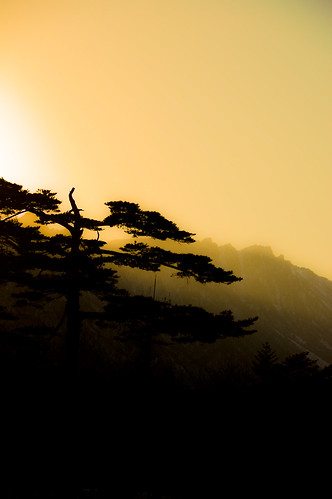
by Daniel Doen Silberberg | Aug 29, 2011 | Uncategorized, Zen

People ask the way to Cold Mountain
but roads don’t reach Cold Mountain
in summer the ice doesn’t melt
and the morning fog is too dense
how did someone like me arrive
our minds are not the same
if they were the same
you would be here
Han Shan 9th Century
Translation by Red Pine
Han Shan, the poets name, means Cold Mountain. Cold Mountain is a place that is both outside and inside. It is the one inside us that Han Shan is speaking of here – and the one we should concern ourselves with.
What does this frozen landscape have to do with our daily life? How can it help us? Why would we want to join Hanshan’s mind in this barren place?
Cold Mountain is not barren at all. It is open and lustrous. It does not harbor concepts, beliefs or illusions.
Find it, practice it and it reveals the truth to you. It gives you the power of the “Way” – which is inexhaustible and can be used for all of your life.
Do that and you will repay Han Shan’s kind instruction.
 photo credit: mendhak
photo credit: mendhak

by Daniel Doen Silberberg | Aug 8, 2011 | Uncategorized, Zen

Daily practice has many aspects. Being one with what we are doing and dropping thoughts and concepts is central. There is nothing wrong with winning. It’s not what you win, its that you cultivate the excellence, focus and intelligence necessary to win. That you trust the power you cultivate through practice. That is the way of the adept.
In time, as we practice, we become ourselves. It is the simple but difficult act of not being our thoughts but instead identifying with the vast field that contains them. That field gradually frees us from the captivity of our own thoughts and conditioning.
So please win – win your life, your freedom.
Ed Seykota is a brilliant trader and a fine observer of people and performance.
In interview he was asked, “What can a losing trader do to transform himself into a winning trader.”
His wonderful response was: A losing trader can do little to transform himself into a winning trader. A losing trader is not going to want to transform himself.
That’s the kind of thing winning traders do.
photo credit: charles chan *
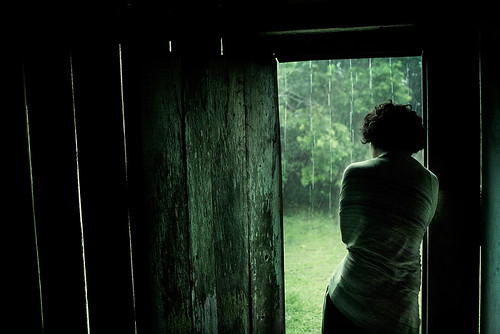
by Daniel Doen Silberberg | Jul 31, 2011 | Uncategorized, Zen

Early Summer Rain –
houses facing the river
two of them.
Buson
Are you there?
Can you see the houses, the rain?
Who are you now?
Ordinary mind is the way.
 photo credit: Cia de Foto
photo credit: Cia de Foto
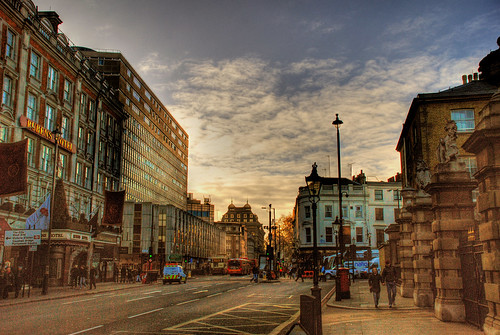
by Daniel Doen Silberberg | Jul 24, 2011 | Uncategorized, Zen

INTRODUCTION TO ZEN PRACTICE
Join Lost Coin Zen at The Buddhist Society Saturday September 10, 2011
Address: 58 Eccleston Square, London SW1V 1PH Time: 10am – 1pm Price: £15
We will explore the fundamentals of Zen practice based on the famous talks given by renowned Zen teacher Yasutani Roshi (1885-1973). He gave these talks to introduce Zen training to Westerners.
Yasutani Roshi is the Dharma grandfather of Doen Sensei, founder of Lost Coin Zen, an international Zen group that synthesizes the Soto and Rinzai sects of Zen as taught through Yasutani Roshi, Maezumi Roshi and the White Plum Asangha.
This introduction to Zen practice will be led by Patrizia Kojin Nestby, a student of Daniel Doen Silberberg and Lost Coin Zen.
There will be time for practicing Zazen and for questions and answers. You will leave with a good understanding of the basics of Zen practice.
To register for this workshop, email to london@lostcoinzen.com
 photo credit: francesco sgroi
photo credit: francesco sgroi

by Daniel Doen Silberberg | Jul 11, 2011 | Uncategorized, Zen

“We must learn to reawaken and keep ourselves awake, not by mechanical aids, but by an infinite expectation of the dawn, which does not forsake us in our soundest sleep. I know of no more encouraging fact than the unquestionable ability of man to elevate his life by conscious endeavor. It is something to be able to paint a particular picture, or carve a statue, and so to make a few objects beautiful: but it is far more glorious to carve and paint the very atmosphere and medium through which we look…”
This essay entitled “Where I lived and What I Lived For” is from Henry David Thoreau’s Walden points to a wonderful koan that I believe we can appreciate as much today as brother Henry did in his time. Tomorrow is Henry David Thoreau’s birthday and though we are not related by blood I feel he is part of our clan. The title “Where I live and What I lived For” is itself the koan and what he says about it is the commentary.
I found this in a copy of Walden – it was one of the last books I gave my father before he died. It was my father’s koan “Where I lived and What I Lived For” – it is mine as well and I hope you will accept it as a gift to you on Thoreau’s birthday.
It is a marvelous practice to carve and create our own atmosphere, our own life.
To really appreciate our life and death is to carve and create our atmosphere and life. It is Genjokoan – the koan of everyday life.
 photo credit: Fred Hsu
photo credit: Fred Hsu

by Daniel Doen Silberberg | Jul 3, 2011 | Uncategorized, Zen
.
An adept – a warrior is always the subject of her own careful scrutiny. Always asking herself the same questions. Am I really practicing? Am I really doing my best? Am I really giving 110%. Am I really letting go of my prejudices, my rightness, my stuckness, my fear? This is the joy of the way the adept lives – with commitment and really demanding the very best from herself as often as she can.
The important word in all this, the one that comes up over and over again is really.
Why wouldn’t anyone choose to live with this freedom and power? The power to make every day of life a joyful challenge. The answer is no one chooses not to live like this – the enemy makes this choice.
The enemy, whose name is fear or inertia, small mindedness – whatever hat it is wearing that day, is very clever. It tells you that it is wisdom, practicality, reasonable caution, maturity. It is whispering in your ear right now as the moments of your life disappear – telling you not to change anything. It is depriving you of your spirit, your freedom, your courage. It is depriving you of your life
 photo credit: Neal.
photo credit: Neal.
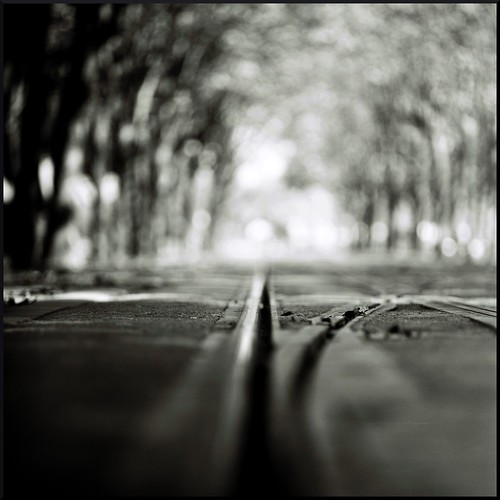
by Daniel Doen Silberberg | Jun 20, 2011 | Uncategorized, Zen

Something I often said when I was Vice Abbot at Kanzeon:
“We get a lot of people who become members here but very rarely do we get a student.” Instead we get teachers – people who think they know a great deal about everything including the Dharma.
When we finally get a student it is clear that person has what it takes to be a teacher.
It is even clearer to me today. The real student, the empty cup, is the real dragon – the right stuff.
 photo credit: filtran
photo credit: filtran

by Daniel Doen Silberberg | Jun 16, 2011 | Uncategorized, Zen

I thought I’d abandoned it all
Even my body
And yet this snowy night is cold
(From the Way of Everyday Life) Hakuyu Taizan Maezumi – Commentaries on The Shobogenzo
In talking about enlightenment and delusion Maezumi Roshi would often say “I prefer delusion.” To grasp enlightenment, to prefer it, to “stink of Zen” is its own kind of delusion. Grasping enlightenment is sometimes referred to in the Blue Cliff Record as being a “board carrying fellow” -a carpenter with a board on his shoulder that blocks his view of everything else.
To be stuck in delusion, to think that that everything is enlightenment, that any thing I do is fine, misses the wonder of the “Great Way” – the beauty of True Self – our inheritance. One side can make us arrogant, right, the other, self indulgent and coarse.
As The Jefferson Airplane said “One pill makes you larger and one pill makes you small.”
To prefer delusion is to become one with your life and death and enter the hall of endless mystery.
This evening the moon shines, pure and white
A magpie shrieks and shrieks in alarm
The lonely sound makes me think of home
But where oh where can I return?
Ryokan
For Joko Beck
photo credit: gregor_y

by Daniel Doen Silberberg | Jun 7, 2011 | Uncategorized, Zen

“And, again, it has been discovered that all the world is made of the same atoms, that the stars are of the same stuff as ourselves. It then becomes a question of where did our stuff come from. Not just where did life come from, or where did the earth come from, but where did the stuff of life and of the earth come from? It looks as if it was belched from some exploding star, much as some of the stars are exploding now.
So this piece of dirt waits four and one half billion years and evolves and changes, and now a strange creature stands here with instruments and talks to the strange creatures in the audience. What a wonderful world!”
From Zen Teacher Daniel Doen Silberberg to Science and Dharma teacher Richard Feynman – gratitude for your life – deep bows.
.photo credit: kevindooley
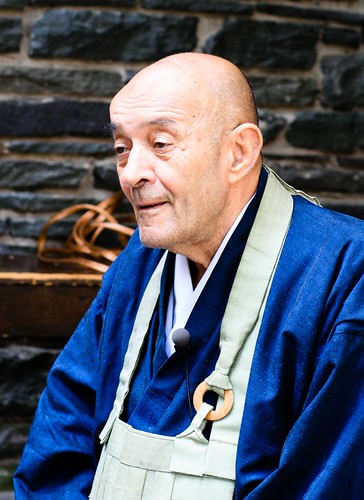
by Daniel Doen Silberberg | Jun 5, 2011 | Uncategorized, Zen

John Daido Loori Roshi
Our fear has us on the run. Sometimes it’s some old story, something that happened to us that we won’t let go of. It becomes our life story – an excuse for being struck.
We become afraid of changing or people but we don’t admit we are afraid – not even to ourselves. Instead we are timid or angry or stubborn.
It might be a good time to turn around and face fear, but first we have to stop blaming everything and everyone else, we have to stop hiding in our heads. Instead we can really admit we are afraid and become a warrior and practitioner of the Way.
Then we can turn around and face our fear before it sinks its teeth completely into our scurrying butt.
photo credit: tinctoris










Recent Comments